Why Marvel has struggled to recapture the magic of ‘WandaVision’
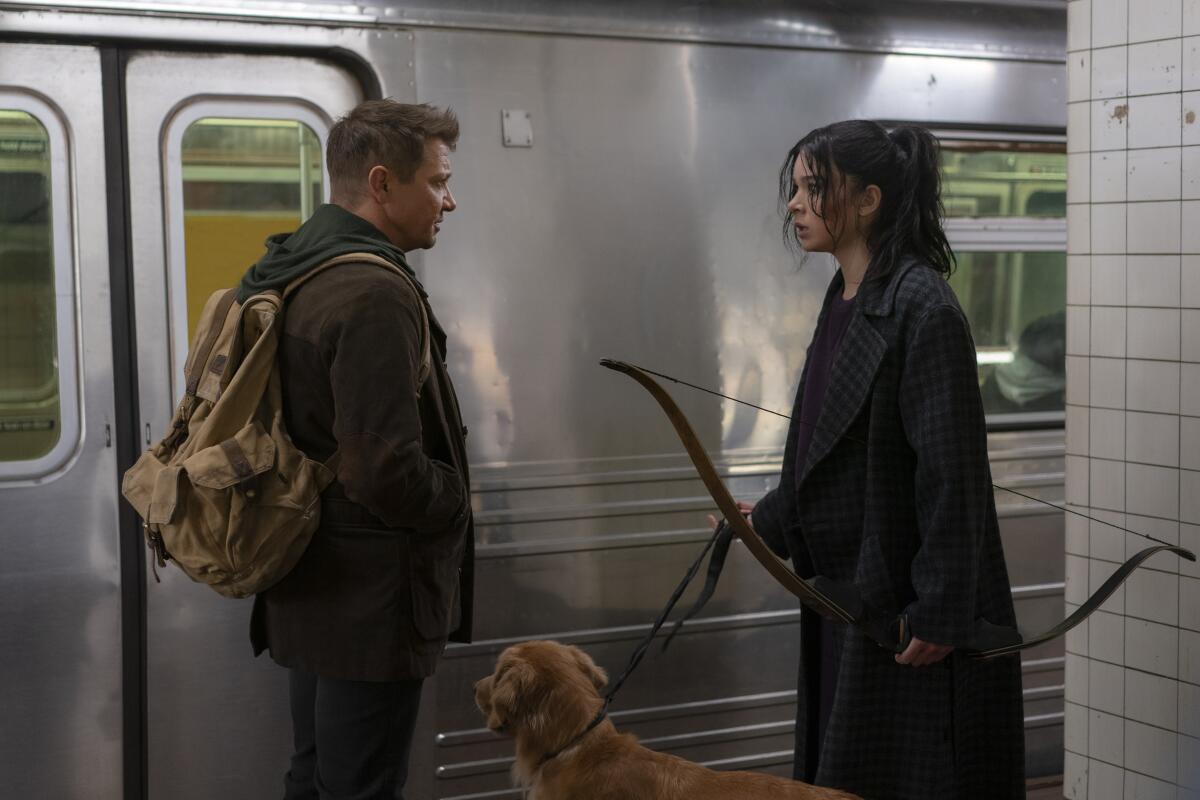
- Share via
This is the Los Angeles Times newsletter about all things TV and streaming movies. This week, we break down the “Succession” finale’s fine art bona fides, prepare you for the return of “The Witcher” and ask the makers of “Station Eleven” about their post-apocalyptic faves. Scroll down!
Welcome to Screen Gab, the newsletter for every “WandaVision” diehard who hasn’t quite gotten around to “Hawkeye” yet.
One of the defining streaming stories of 2021 is the introduction of the Marvel Cinematic Universe to Disney+, which began back in January with the blockbuster success of its warped sitcom homage, starring Elizabeth Olsen as Wanda Maximoff, the Scarlet Witch. Combining clever allusions to TV classics such as “The Brady Bunch” and “Modern Family” with comic-book twists and turns and a powerful portrait of grief, the Emmy-nominated limited series dominated the cultural conversation in the early part of the year, and seemed to augur well for the franchise’s big push onto the small screen.
Then something funny happened on the way to the man beyond the void at the end of time: Marvel’s subsequent entries failed to make lightning strike twice. “Loki,” a devilishly constructed, slightly deranged policier — think “True Detective” in an alternate universe — starring Tom Hiddleston as the god of mischief and Owen Wilson as the thorn in his side, at least captured some of the same verve, if not the same scale of attention, as “WandaVision”; but the more straightforward “The Falcon and the Winter Soldier” and (so far) “Hawkeye” barely caused a ripple in the culture compared to the mysteries of Wanda’s New Jersey suburb.
Analytics company Samba TV reported that five-day opening weekend viewership of “Hawkeye” was down a worrying 40% from “Loki.” In the absence of reliable viewership data from Disney+, though, this assessment necessarily depends on other metrics as well: social media engagement, readership of Times staff writer Tracy Brown’s expert explainers, viewer anecdotes. Still, it’s reasonably clear that through year one, enthusiasm for Disney+’s MCU series appears to benefit from the contortions of the multiverse and the aesthetic experimentation it brings: Unlike in cinemas, where epic sweep counts for a lot, standard action-adventure fare with a modicum of comedy, Marvel’s bread and butter, hasn’t been enough to sustain viewers’ interest over six to nine weeks.
Then there’s the novelty factor. Since audiences went in with no real idea what to expect from a Marvel Disney+ series, “WandaVision” stormed out of the gate with surprise after surprise: tonal shifts, secret identities, shocking cliffhangers. Even its premise turned out to be a long con. “Loki” managed a similar feat with a cavalcade of variants (including an alligator) and an extra helping of insouciance. To a casual Marvel fan, by contrast, “The Falcon and the Winter Soldier” and “Hawkeye” — which are not without their charms, it should be said — might feel rather too familiar. What am I getting here, one might ask, that I’m not getting in the movies?
In this sense, the outlines of a Marvel TV hit are beginning to take shape, and it appears that a fair barometer is “stories too idiosyncratic for the multiplex.” Perhaps that’s just another way of saying the Marvel series to take hold of the zeitgeist are plain ol’ good television. Which, as you can see, is harder to pull off than it looks.
The complete guide to home viewing
Get Screen Gab for everything about the TV shows and streaming movies everyone’s talking about.
You may occasionally receive promotional content from the Los Angeles Times.
ICYMI: The Best of 2021
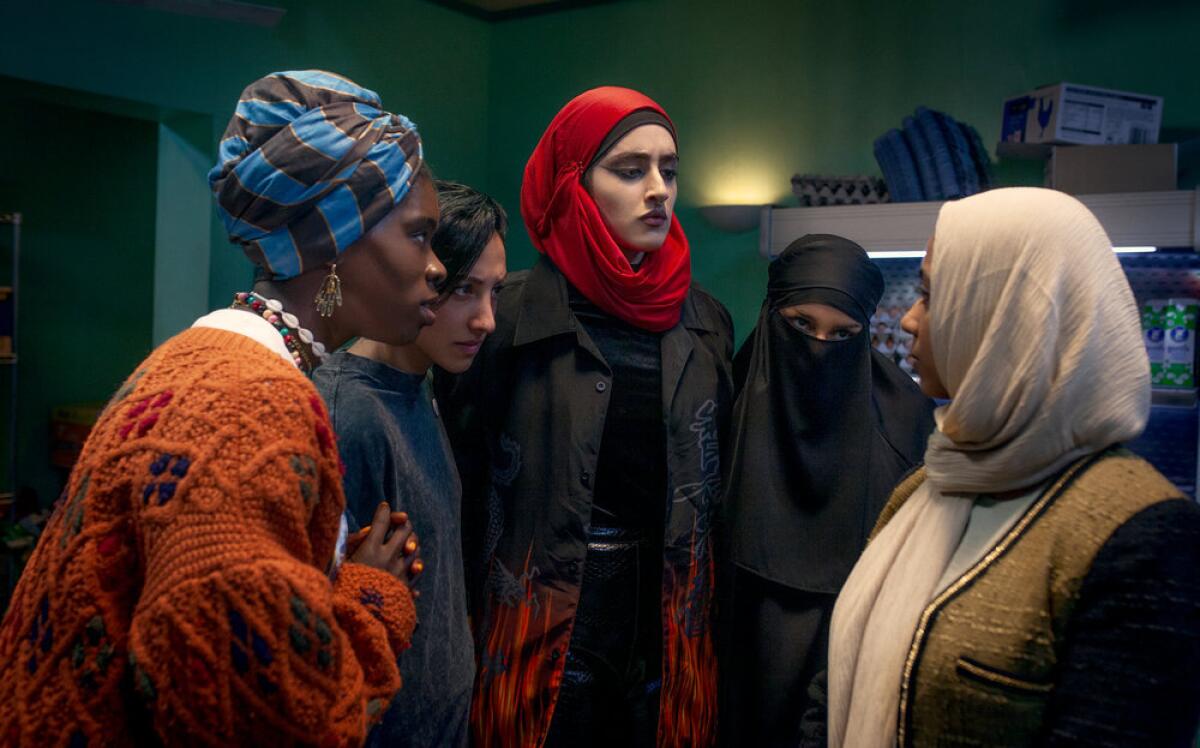
We look back on the year that was
Lorraine Ali’s top 11 TV shows of 2021: From “Hacks” to “We Are Lady Parts,” a sampling of the shows that challenged the darkness of the pandemic and democratic crisis with boundary-pushing humor, drama, fantasy, science fiction and more.
Robert Lloyd’s top 13 TV shows of 2021: Television will not be kept down. From “Reservation Dogs” to “Only Murders in the Building,” the medium produced an impressive number of first-rate programs in 2021, bearing no mark of the straitened circumstances under which they were produced.
Justin Chang’s best movies of 2021 — and where to find them: The top films of the year include “Drive My Car,” “The Power of the Dog” and “The Green Knight.”
From Britney to the Beatles, it was a watershed year for music documentaries: Thanks to deep-pocketed streamers with an insatiable need for content and subscribers, music fans enjoyed an unparalleled bounty of documentaries in 2021.
Turn on
Streaming recommendations from the film and TV experts at The Times
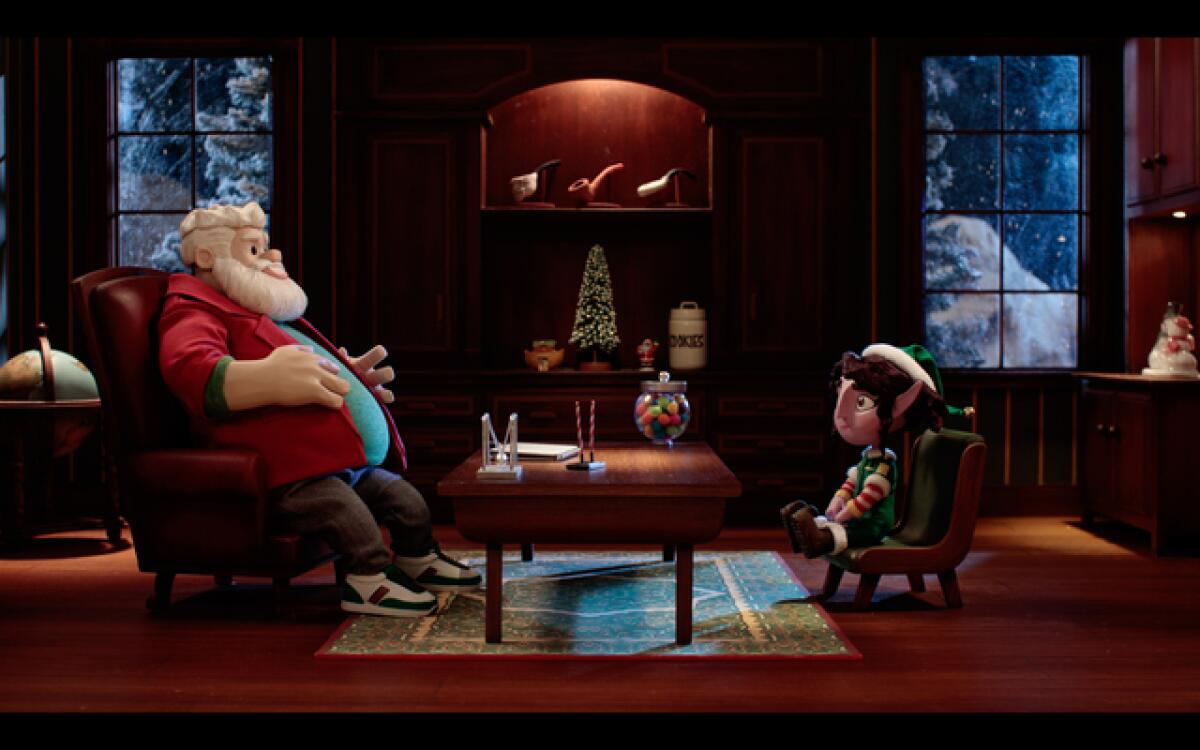
“Santa Inc.” (HBO Max). Parents take warning. Though the business of the North Pole has often been recast in a modern context, it has surely never been quite this modern, profane or occasionally obscene. In this decidedly feminist stop-motion holiday series, created by Alexandra Rushfield (“Shrill”), Sarah Silverman gives voice to elf Candy Smalls, an upper-management executive who aims to be named successor to the current Santa Claus (Seth Rogen, in jovial blowhard mode) in order to promote equality, improve working conditions and bring social responsibility to a less-than-happy Workshop. The puppet-animated sex won’t be to everyone’s taste — indeed, it’s not to mine — but there is more than enough story to go on, Silverman provides just the right mix of sweetness and spiciness, and the character animation is marvelously expressive. With Leslie Grossman as Cookie, Candy’s gingerbread friend; Gabourey Sidibe as Goldie, her other friend, leader of the perennially benched female reindeer B-team; Craig Robinson as Rudolph’s arrogant offspring; and Maria Bamford as a sexually frustrated Mrs. Claus. —Robert Lloyd
Catching up on “Star Wars: The Bad Batch” (Disney+), a spin-off series following a team of misfit clone soldiers introduced in the excellent “Star Wars: The Clone Wars,” has been a fun reminder of just how rich the world-building and character work has been on the animated “Star Wars” shows. It’s not the best entry point for a “Star Wars” novice, but for those at least familiar with the films, it’s a deeper look into what happens in that galaxy far, far away immediately after the Empire takes over in “Star Wars: Episode III — Revenge of the Sith.” Without getting too deep into the lore of it all, this is a story about a group of soldiers who didn’t suddenly lose their free will and switch sides — unlike the rest of their brothers in arms — having to figure out their place in the world now that their enemies have won. All while trying to take care of a kid. And yes, there is a small “Mandalorian” connection through the appearance of bounty hunter Fennec Shand. —Tracy Brown
Catch up
Everything you need to know about the film or TV series everyone’s talking about
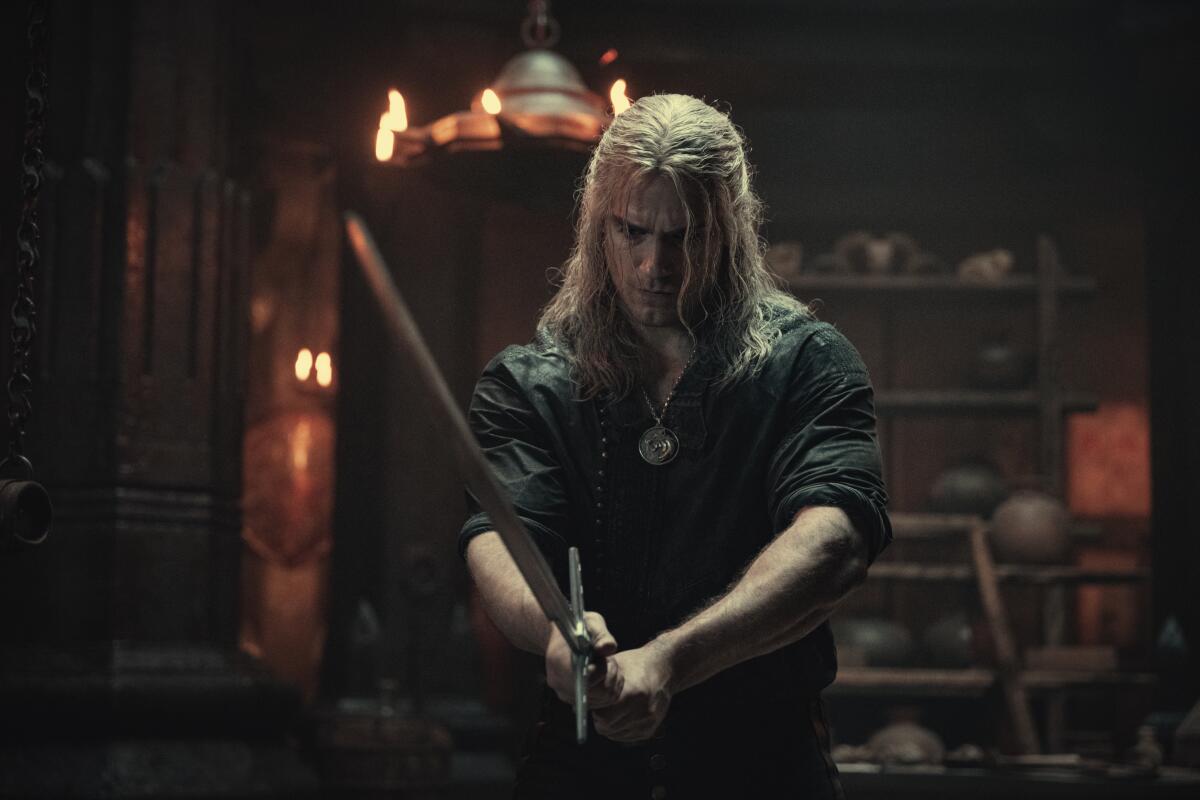
Refresh your memories: Season 2 of “The Witcher” (Netflix) premieres Friday, right in the middle of the action of the last episode of Season 1.
The fantasy series was a hit for Netflix when it first bowed, and fans have waited just shy of two years for more. And, perhaps addressing a common complaint from Season 1, that’s the only time jump the creators played with this time around: In Season 2, you just have to get on that horse and ride with Geralt of Rivia (Henry Cavill) and his “surprise” Ciri (Freya Allan). You can go all completist and binge the first eight episodes before pressing play on Season 2 or check out a helpful rewind — set to Kanye West’s “Monster,” naturally — on the show’s YouTube page.
Questions left at the end of Season 1 are answered quickly, and power changes hands from episode to episode. The tale of mages, monsters and political intrigue adds seasoning with the addition of Geralt’s father figure Vesemir (Kim Bodnia) and some quality time at the home of the witchers (note the plural), Kaer Morhen. But time flies and just when you feel as if the story has some get-up-and-go, there it went. Word on the internet streets is that most of the story for this season comes from “Blood of Elves,” the book that followed the short stories. Get ready for more and different monsters, hints of war, displaced peoples (include elves) trying to regain their home — and a new banger to go with Jaskier’s (Joey Batey) “Toss a Coin to Your Witcher.”
Speaking of power shifts: Though Yennefer of Vengerberg is the badass mage we know and love, she’s far from the only one. Fringilla, the mage of upstart Nilfgaard, steps up with not just magic but leadership abilities, and a devotion to the cause that means she’s a force to be reckoned with. And Cahir the Black Knight (Eamon Farrey) won’t quit coming for Ciri and her power. The Continent won’t conquer itself, after all. Which means that, though it was big and fiery, the carnage we witnessed at the end of Season 1 is just a battle on the way to a bigger fight for all concerned. (Forgive me.) Winter. Is. Coming. (I couldn’t resist.) —Dawn M. Burkes
Guest spot
A weekly chat with actors, writers, directors and more about what they’re working on — and what they’re watching
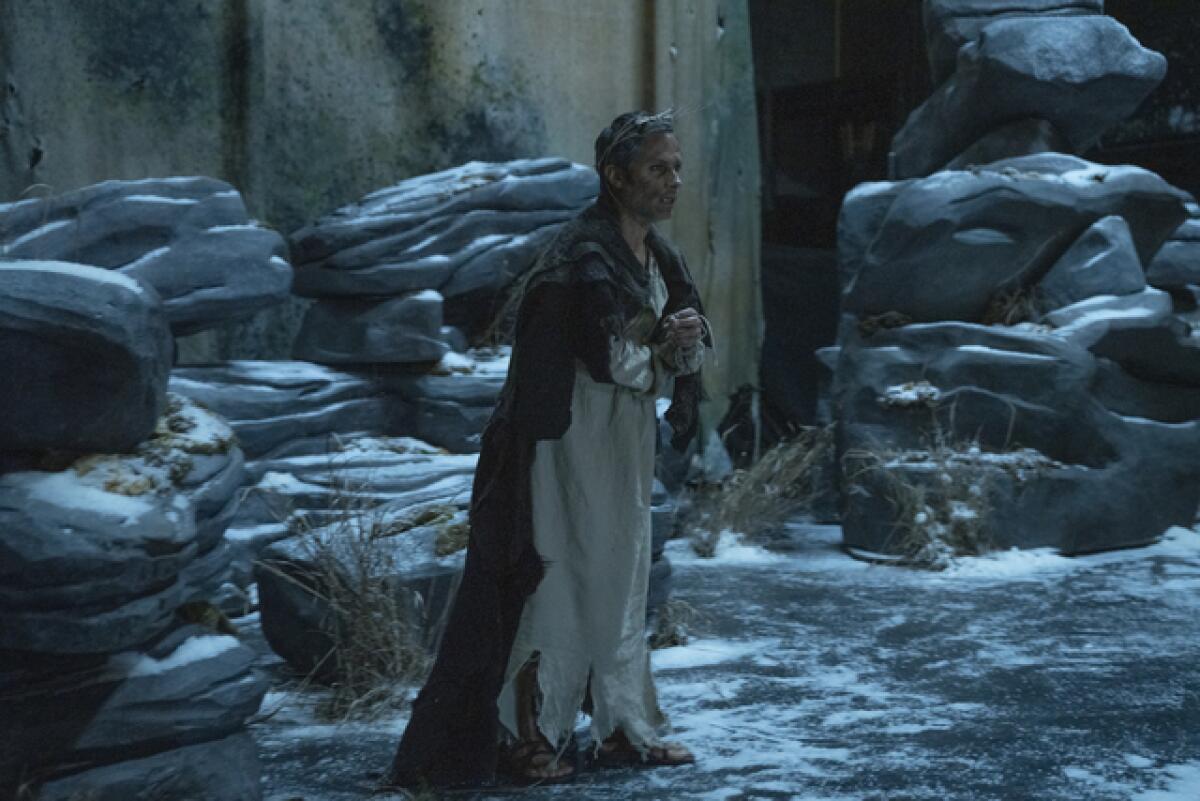
With “Station Eleven” (HBO Max), his highly anticipated adaptation of Emily St. John Mandel’s 2014 novel, series creator Patrick Somerville has made a pandemic-set drama in the midst of a pandemic — albeit a less cataclysmic one than the one on the page and screen. Staff writer Ashley Lee spoke to Somerville about his prior TV credits, his own role in a fallen society and what apocalyptic fictions he loves.
How did your tenure on “The Leftovers” help you with this adaptation?
Watching Damon Lindelof and Tom Perrotta navigate that adaptation is really where I learned how to be a TV writer myself. They used much of the novel for the first season, but were in completely new space for Seasons 2 and 3, when I joined. So I’ve always had a very optimistic — and yet extremely aggressive — approach to the idea of adaptation because I think, to do it really well, you have to deconstruct a story and then reconstruct it in the spirit in which it was written.
Why relocate “Station Eleven” from Toronto to Chicago?
I lived in Chicago for nine years; I wanted the L, I wanted the theaters downtown, I wanted them to be stuck in Lake Point Tower and look out at Lake Michigan like it was an ocean. I met with Emily to get her blessing on a few things, and that was the big one. I wanted to know that she wouldn’t be devastated if I moved the story to the city I knew well in the Great Lakes region instead of keeping in the city she knew well in the Great Lakes region. And she said, “Go with God, Patrick.” And then COVID happened and we ended up shooting Toronto for Chicago. The wheel around the Great Lakes was imposing itself on our production.
What (post-)apocalyptic stories do you love and why?
I loved “The Road” [by Cormac McCarthy] when it came out. Its shock value and literary power rattled me, in how it’s really about pain and love. And this isn’t quite post-apocalyptic, but “The Left Hand of Darkness” by Ursula K. Le Guin exists in a similar space for me, in that it’s using the genre to examine humanism instead of sensationalism. My answer is always, when in doubt, read something by Ursula K. Le Guin.
What role would you play in a “Station Eleven” like-society?
I love so many of the characters because they are so similar to each other, even though they think they’re at war, just like a lot of us during the pandemic. I wish I was like Kirsten (Mackenzie Davis), but I’m probably more like Clark (David Wilmot). If I were in the Traveling Symphony, I would be tempted to join the “Undersea,” but I would busk until I died.
Break down
Times staffers chew on the pop culture of the moment — love it, hate it or somewhere in between
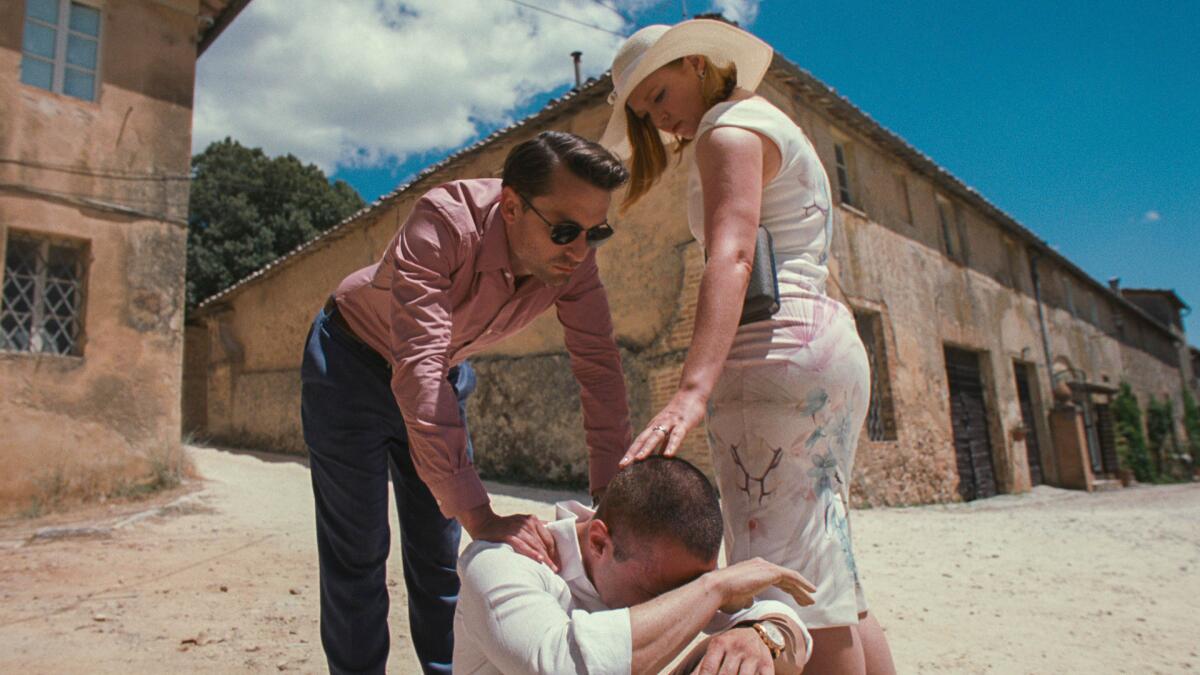
Season 3 of “Succession” (HBO, HBO Max) may have concluded with the all-time “If looks could kill” champion, but the moment that’s set the internet alight since Sunday’s finale is depicted in the above still, in which Roman, Kendall and Shiv Roy come together after a season of especially brutal backbiting. Arts editor Paula Mejía spoke to the episode’s director and several art experts, including Richard Rand, the associate director of collections at the Getty Museum, about the comparisons the image has drawn to Renaissance art.
“The drama [of ‘Succession’] is told through the human experience, right? And that’s always been the case with Renaissance or Baroque paintings … the human body was the conduit for the drama,” Rand says. “The way the [Roy siblings are] gathered and their body postures and gestures are obviously right out of paintings that are generally familiar to most viewers, even if there’s no one specific painting that it’s emulating.
“They’re communicating through their body gesture as much as through the words they speak,” he adds. “And that’s key to painting, of course, because we can’t hear people speak, so we have to understand what they’re thinking through their facial expressions and gestures. It’s often very subtle, because there were rules about decorum in Old Master painting, where you didn’t really want to show people in extremis, with wild facial expressions. I think ‘Succession’ is good at that: Sometimes people freak out ... but usually they’re all composed and measured, even while they’re being horrible and vicious.”
In Rand’s view, great TV and cinema use “the techniques of the Old Masters to compose a scene, create the tableau of the figures to enhance the drama and to bring depth and emotional richness to it,” which nods to the practice of tableaux vivants, or living pictures made with real-life actors or models. As for director Mark Mylod, though, the inspiration was simpler: his and the actors’ well-honed instinct, or “emotional intelligence.”
“I hadn’t thought, ‘Oh, let’s make this a Rembrandt-style shot or something,’” Mylod says.
What’s next
The TV shows and streaming movies to keep an eye on in the coming week
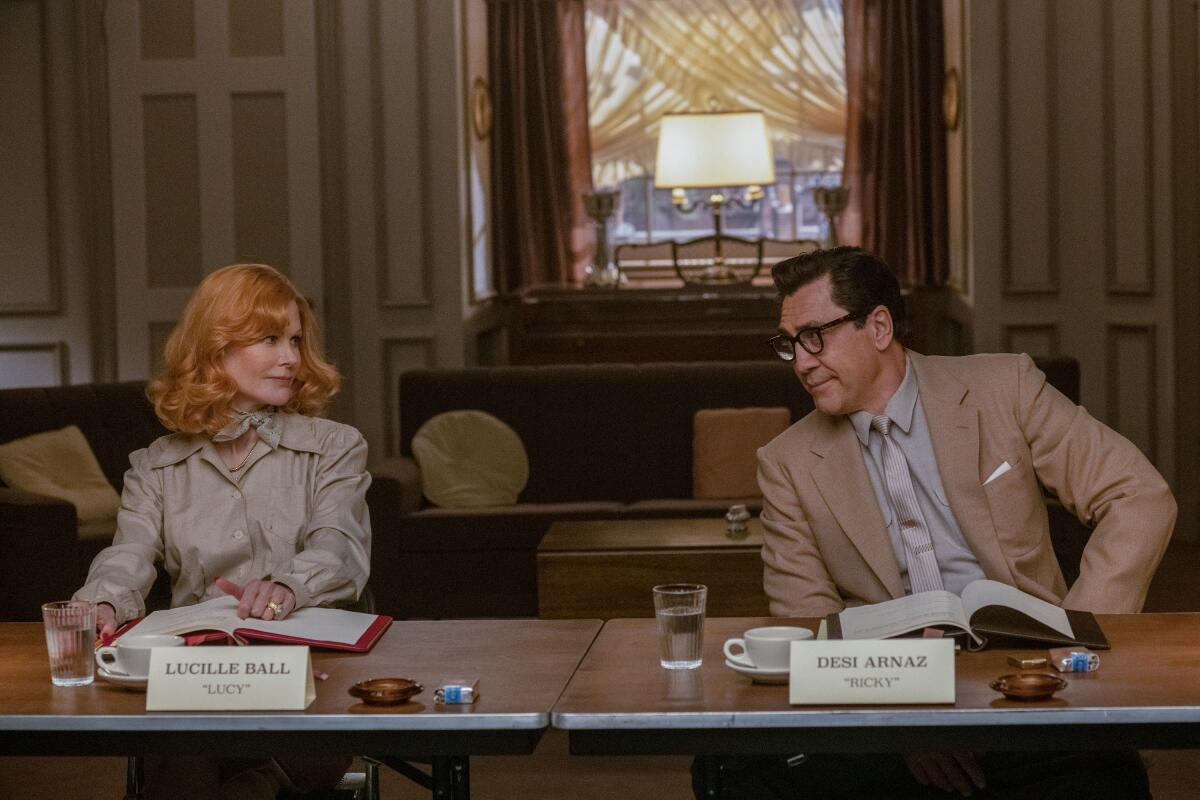
Fri., Dec. 17
“Mother/Android” (Hulu): Chloë Grace Moretz meets android uprising. (Wasn’t this the movie she appears in in “Clouds of Sils Maria”?)
“Swan Song” (Apple TV+): A futuristic drama about end-of-life decisions with Mahershala Ali and Glenn Close, not a comedy about a hairdresser with Udo Kier and a Robyn banger.
“With Love” (Amazon): If you like your romantic comedies with a side of seasonal spirit, check out Amazon’s new series from “One Day at a Time’s” Gloria Calderon Kellett: Each of the five hour-long episodes is set on a different holiday.
Sun., Dec. 19
“1883” (Paramount+): The Taylor Sheridan extended universe continues to grow with this 19th century-set “Yellowstone” prequel starring Sam Elliott, Tim McGraw and Faith Hill.
Tues., Dec. 21
“Being the Ricardos” (Amazon): Lucy. Ricky. Aaron Sorkin. The “Sports Night,” “Studio 60” and “The Newsroom” creator applies his adoration for backstage fireworks to “I Love Lucy,” all set against the backdrop of the Red Scare. With Nicole Kidman as Lucille Ball and Javier Bardem as Desi Arnaz.
Wed., Dec. 22
“Emily in Paris” (Netflix): Creator Darren Star is back with Season 2 of Netflix’s brightly colored, easily binged, intermittently controversial confection about a ringarde American in Paris.
“The Matrix Resurrections” (HBO Max): The rabbit hole goes deeper. Keanu Reeves and Carrie-Anne Moss are back for the first installment in the game-changing franchise in nearly two decades.
Mail bag
Want to know more about one of the filmmakers we’ve interviewed? Need a new show to binge now that your fave is done for the season? If you have a question about TV or streaming movies for the pop culture obsessives at The Times, send it to us at [email protected] and you may find the answer in next week’s edition.
The biggest entertainment stories
Get our big stories about Hollywood, film, television, music, arts, culture and more right in your inbox as soon as they publish.
You may occasionally receive promotional content from the Los Angeles Times.



